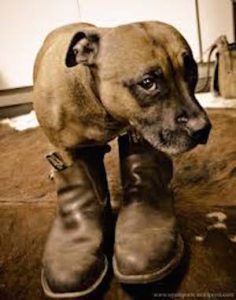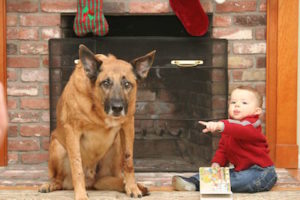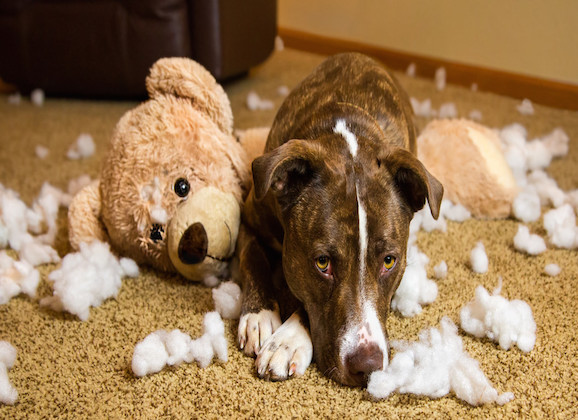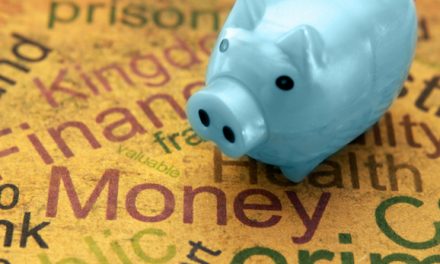 If you’re a dog owner then you know the look of guilt. The one where your dog’s head lowers, their ears pin back and they stare at you with that pound-puppy look. I know I’ve seen that look too many times to count, and it always occurs after the dog has destroyed something.
If you’re a dog owner then you know the look of guilt. The one where your dog’s head lowers, their ears pin back and they stare at you with that pound-puppy look. I know I’ve seen that look too many times to count, and it always occurs after the dog has destroyed something.
We assume that when our dog gives us the guilty look it’s because they are, well, guilty. They know they have done something wrong and feel bad that we’re upset with them.
How many times have you walked through the door after a long day at work to find your dog anxiously sitting in the corner with their look already displayed, when little do you know your closet has just been ransacked by a demon-child?
Research is now showing, however, that perhaps man’s best friend is not showing guilt, but rather displaying behavior that’s been engrained into their species before man domesticated them.
When a dog displays the look of guilt, it’s very possible that in reality the dog is displaying submissive behavior in response to their owner’s reaction. Knowing that you are about to be upset, the dog displays a submissive reaction in anticipation to your scolding. In a pack, it’s the way the submissive dogs keep the peace, according to Julie Hecht, writer and canine researcher.
The guilty look is often associated with stress, anxiety or fear in the dog, and not guilt. Because they know the mess will trigger an emotion in you, they display their “guilty” response to calm you down, not in response to the mess.
Hecht writes about a veterinarian who had a client complaining that his dog shredded paper whenever he left the house. The vet suggested to the client to shred paper before leaving the house to see the dog’s reaction when he came home. When he returned the dog displayed the look of guilt, even though she did not shred the paper this time. Her response was to her owner’s about-to-be-upset face because shredded paper was in the house.
Should the dog be shredding paper? No, but the bigger question is why is the dog shredding paper, and not does she feel guilty for doing it?
Hecht says instead of focusing on the fact your dog may be guilty for doing something bad, try to figure out why the dog is being  destructive. Often dogs get destructive if they’re bored, anxious or scared.
destructive. Often dogs get destructive if they’re bored, anxious or scared.
Trying to figure out the root problem will be more helpful in solving destructive behavior than it will be to assume your dog knows they should not be destroying the living room because every time they do they look guilty.
Although the guilty look may not be an actual indicator of a guilty emotion, your dog definitely has emotions, they just know how to play their cards right.

















